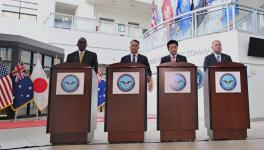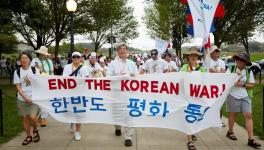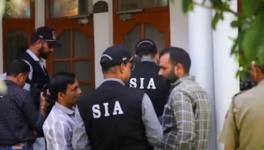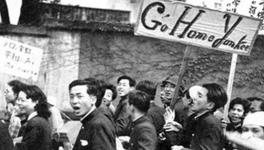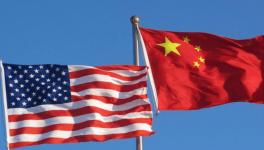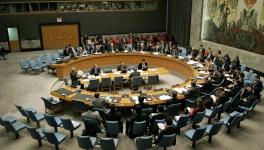Why Shinzo Abe's State Funeral has Provoked Anger in Japan
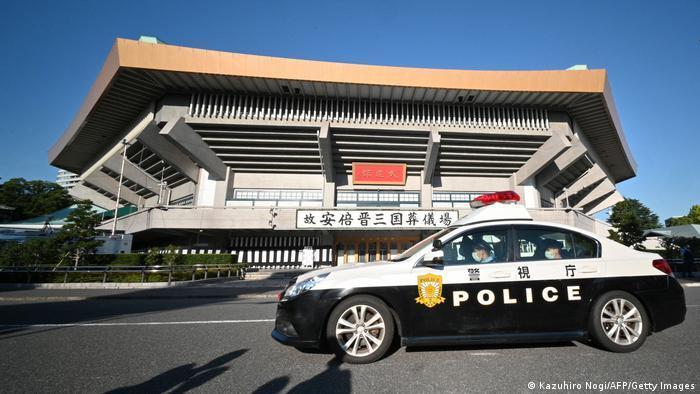
Guests will gather hours ahead of the funeral at the Budokan arena for security checks
The Japanese government's decision to go ahead with Tuesday's state funeral for former Prime Minister Shinzo Abe, who was assassinated on July 8 while campaigning for an upcoming election, has caused as much controversy as Abe did himself during his decades in politics.
Among the more than 6,000 guests invited to attend the service — which will take place at central Tokyo's Nippon Budokan arena — are US Vice President Kamala Harris, French President Emmanuel Macron as well as the leaders of Australia, India, Vietnam, Cambodia and Singapore, among dozens of heads of state.
Japan split over state funeral
A private funeral was held in July for Abe's family and close associates at a Tokyo temple.
Tuesday's event will show that "Japan will not give in to violence and is determined to protect democracy," Japanese Prime Minister Fumio Kishida told reporters.
However, the decision to hold a state funeral has attracted widespread criticism — both over the cost involved and the claims by some that they are effectively being forced to mourn a leader whose policies they opposed.
The anger is so severe in some parts of society that a man in his 70s attempted to commit suicide outside the prime minister's office in Tokyo on Wednesday by pouring a flammable liquid over himself and setting it on fire. He is being treated at a hospital.
Skyrocketing costs
The original cost of the state funeral was put at a modest 250 million yen (€1.74 million), but that soon ballooned to 1.65 billion yen. Officials admitted that providing police and security will cost an additional 800 million yen, while hosting foreign leaders will add an extra 600 million yen to the total bill.
There was initially widespread anger and shock at the death of Abe after he was shot on a street corner in the city of Nara by a man angry about the influence that the Unification Church wielded over Japanese politics.
However, polls show many people are against holding a state funeral for Abe, which would be the first since Shigeru Yoshida, Japan's first post-war prime minister, was accorded the honor in 1967.
In a recent poll by the Yomiuri Shimbun newspaper, 56% of people said they opposed a state funeral for Abe, with only 38% in support.
The government has even faced a number of legal challenges, with the Tokyo District Court dismissing on September 9 a petition demanding the funeral be blocked.
'Obligation' to mourn Abe?
Nearly 600 citizens sued the government on the grounds that a state funeral of a former prime minister would be a breach of the constitution and that it would "oblige the public " to mourn the death of Abe.
The court dismissed the petition, arguing there is no legal basis for permitting a formal request to block the implementation of state spending for a funeral.
Other similar lawsuits were also rejected.
And while politicians from Abe's Liberal Democratic Party (LDP), its coalition ally Komeito, Nippon Ishin and the Democratic Party for the People will be at the Budokan, many opposition politicians have declared that they will not attend the ceremony.
No representatives of The Constitutional Democratic Party of Japan (CDPJ), the Japanese Communist Party, the Social Democratic Party or Reiwa Shinsengumi will be present.
"The state funeral is being forcibly held at the Cabinet's own discretion," CDPJ President Kenta Izumi said. "It is no wonder that many people feel uncomfortable, doubtful and opposed."
Kazuo Shii, the chairman of the Japanese Communist Party (JCP), said in a Twitter post on Tuesday that he found himself unable to pay his respects to the former leader because he felt he was being "forced" to do so by the government's decision.
Ken Kato, a businessman from Tokyo and a member of the LDP, said the criticism of the decision to go ahead with the funeral made him "very angry and disappointed."
"I am sure that many ordinary people want to be able to pay their respects to Abe and although we will not be able to enter the Budokan, I will be among those who will bring flowers and make offerings on the day," he told DW.
"Personally, I do not understand why so many people are opposed to an official funeral or paying respects to a leader who was killed while he was doing his job for the nation," Kato said.
"In Japanese culture, we pay our respects to other people when they die, even if they were a rival in business or politics. It's the correct thing to do. It's a sign of respect and a mark of our culture."
Kato added that Abe would be remembered in Japan and beyond as a strong leader who stood up to an aggressively expansionist China, united the nations of the Asia-Pacific region and forged alliances with the aim of protecting "free and open "trade and the rule of international law.
Others, however, said they were unlikely to even watch the event on television.
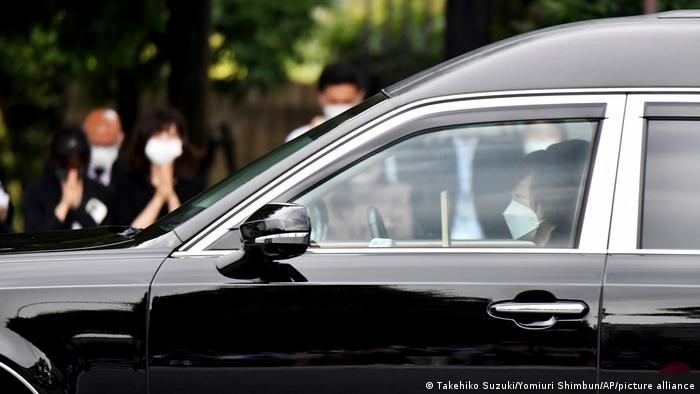
A private funeral was held for family and close associates at a Tokyo temple in July
Tokyo resident Hiromi Iuchi, told DW she intends to avoid the center of the city on the day of the funeral.
"I am just not interested in taking part in being there," she said. "I think it has all become terribly politicized and it is turning into an opportunity for politicians to score points against each other."
Iuchi said it was too late to cancel the event now and that any remaining legal challenges should be dropped as it would be "impossible" for the government to not go ahead at this late stage as it would cause embarrassment on the global stage.
"Most people are worried about rising prices and their falling spending power at the moment," she pointed out. "The funeral is going to cost money, but it's not a huge amount. I do wish that the politicians would think more about the ordinary people, though."
Edited by: Keith Walker
Get the latest reports & analysis with people's perspective on Protests, movements & deep analytical videos, discussions of the current affairs in your Telegram app. Subscribe to NewsClick's Telegram channel & get Real-Time updates on stories, as they get published on our website.











